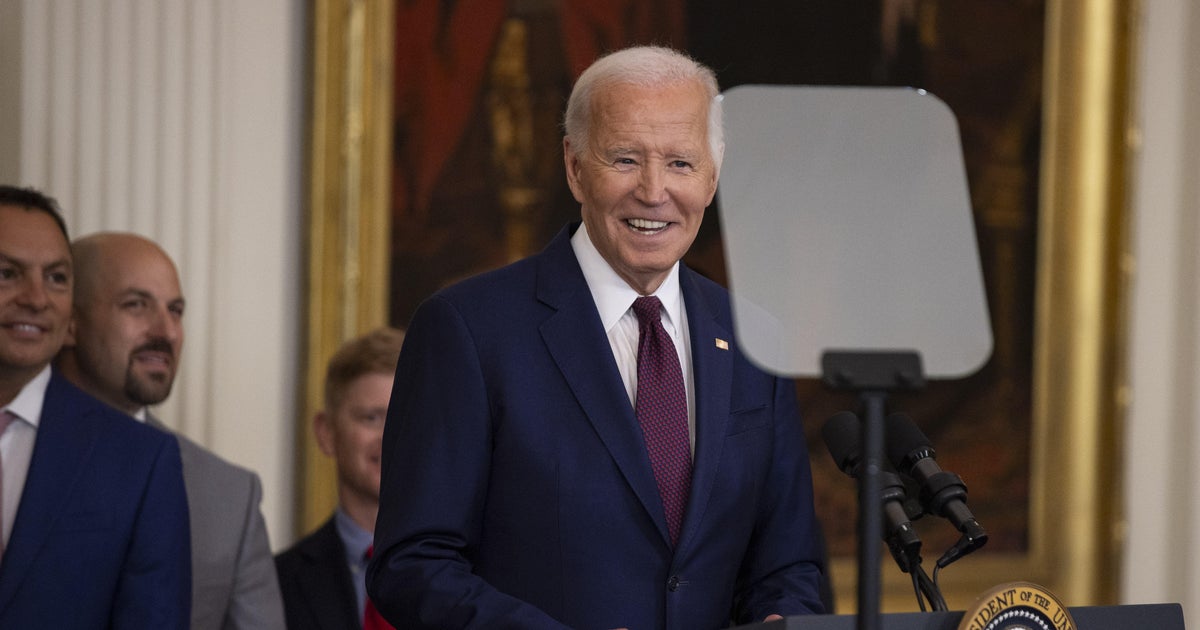By Paulina Smolinski
/ CBS News
“CBS Evening News” headlines for Aug. 12, 2024
New Orleans, Louisiana —President Biden and first lady Jill Biden are traveling to New Orleans Tuesday to tout the Biden Cancer Moonshot initiative, a week after the Department of Health and Human Services awarded nearly $9 million to improve access to cancer screenings and follow-up treatments in underserved communities – part of the initiative’s effort to expand preventive cancer care.
Two years ago, the Biden administration relaunched the Cancer Moonshot initiative with two main goals — to prevent 4 million cancer deaths by 2047 and to improve the experience of people affected by cancer.
Since then, the initiative has announced collaborations with the private sector, among them an effort involving the country’s largest health insurers, who have committed to expand access to services to help patients and their families in the U.S. navigate cancer treatments or screenings and $100 million for cancer prevention and treatment in Africa.
But the upcoming election may affect future cancer research funding for the Cancer Moonshot. The program began under the Obama administration in 2016, and it continued to receive funding during the Trump administration, too. Mr. Biden also initiated a private-sector phase that he paused in 2019 when he launched his bid for the presidency. Funding for the Cancer Moonshot initiative decreased during the pandemic in 2020.
“With every election, there’s a concern that funding will be cut. And over the past few years with the budget standoffs, that has significantly infected funding for cancer research,” said Dr. Stefan Grant, director of the Tulane Cancer Center.
Cancer is the second-leading cause of death in the United States, with approximately 600,000 deaths annually, according to the Health and Human Services Department. A new cancer study found that male cancer cases are expected to rise by 53% globally from 2022 to 2050. The president often speaks about how his own life has been affected by cancer after his son Beau Biden died from brain cancer in 2015 at the age of 46.
One focus of the initiative is increasing engagement in cancer prevention by urging Americans to get cancer screenings that they missed during the pandemic. One study funded by the Cancer Moonshot is researching cancer detection blood tests as a less invasive tool for early detection of cancer. It also works to increase community engagement in order to address disparities in cancer treatment.
“If you have great treatment, it doesn’t mean anything if you can’t get it to the patients,” says Dr. Joe Ramos, Director and CEO at the Louisiana Cancer Research Center, who will join the president at the New Orleans event. He says the Cancer Moonshot initiative works to re-frame the conversation around cancer to be more patient-centered.
Grant says the Louisiana area that he serves sees a number of cancers caused by factors that are preventable – smoking, obesity, and inactivity. His team is working on community outreach to modify those risks and advocate for more cancer screenings. Cancers identified early are often more treatable.
“Within Louisiana, it’s historically been difficult to access care,” says Grant. “We are trying to make entry into and flow through the healthcare system as painless as possible. The healthcare system is a terrifying place for people who haven’t lived in it.”
But funding specifically allocated for the Cancer Moonshot was not renewed in the March congressional spending bill, leading to concerns about funding in the future.
Ramos says this is a bipartisan issue that needs congressional funding.
When asked if the Trump campaign would advocate continued funding for the Biden Cancer Moonshot initiative Karoline Leavitt, Trump’s national press secretary responded, “serious question: what policies has he implemented? And what have they done?”
“America leads the world in cancer research, and it does that because the government has been such a great funder of research,” Grant said. “We really don’t want to lose that edge.”
Jake Rosen and Aaron Navarro contributed to this report.
Jacob Rosen and Aaron Navarro contributed to this report.


